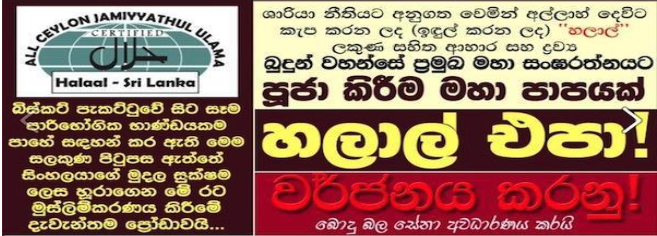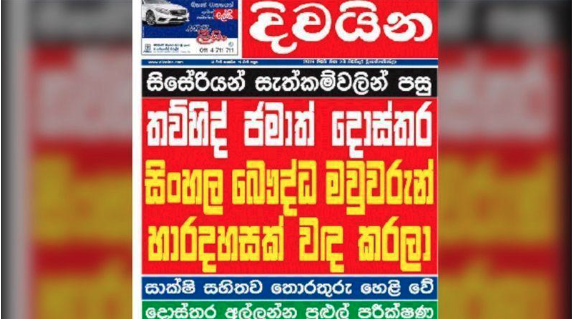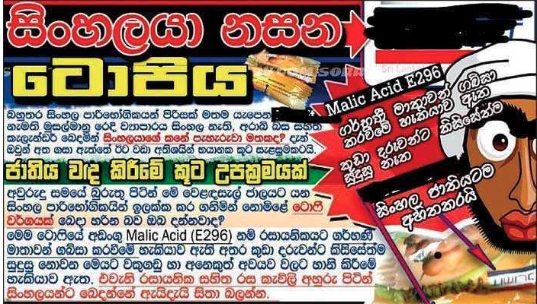Introduction
Disinformation is a soft security notion that leads to hard security threats. It involves deliberately spreading false information with malicious intent to mislead and manipulate users. This practice creates unrest, erodes public trust, and ignites violence. In today’s digitised world, mitigating and preventing disinformation has evolved into a formidable challenge – one that is particularly pronounced in diverse nations like Sri Lanka. As a multicultural country, Sri Lanka holds the potential for both harmonious growth and potential conflict arising from its differences. This situation can be analysed through the lens of the devastating Easter Sunday terror attack in 2019. This Insight seeks to examine the shifting Sri Lankan threat landscape, and the symbiotic relationship between the realms of physical warfare and cyberspace. The Easter Sunday attack serves as an illustrative example of how physical violence encroached upon the digital domain, and how the digital domain reciprocally facilitated a resurgence of physical violence.
The Attack
On Easter Sunday in 2019, bombs ripped through churches and hotels in Sri Lanka, killing at least 290 people and injuring hundreds more. The main target of these coordinated attacks was Christians. This catastrophe sent shockwaves through Sri Lanka, as the nation had not encountered any large-scale destruction since the defeat of the Liberation Tigers of Tamil Eelam (LTTE) in 2009. Exacerbating the trauma, it came to light that the government had received 97 warnings about suicide bomb threats before the Easter Sunday attacks. Even at that time, local security agencies were closely monitoring a secretive cell of the lesser-known National Thowheeth Jama’ath (NTJ), a radical Islamist organisation significantly shaped by Wahhabism, the official religious ideology in Saudi Arabia that advocates for a stringent and literal interpretation of the Quran and the teachings of the Prophet Muhammad. Even Muslim religious leaders, such as The Waliyyullah Trust (WT), had alerted government officials about the impending threat posed by the National Thowheeth Jama’at as early as March 2017, urging action to ban NTJ.
Extremist Nationalist Propaganda
In the aftermath of the attack, a considerable number of Sri Lanka’s 15 million Buddhists were apprehensive about the possibility of being targeted by jihadists; rumours circulated the community and online, building a sense of anxiety and unease. At the same time, Muslims began to be viewed by other religious groups as ‘potential terrorists’ – contributing to an atmosphere of Islamophobia.

The post above, taken from a Facebook group titled ‘Protect the Buddhism’, depicts how Buddhists should boycott Muslim businesses for serving halal food to the Sangha (the Buddhist majority ethnic group in Sri Lanka).

The above post from a Sinhala daily paper carried a controversial article claiming that Dr Shafi Shihabdeen, a Muslim doctor in Kurunegala, had “forcibly sterilised more than 4000 Sinhala Buddhist women after cesarian surgeries”.

The above post claims that Muslim-owned clothing stores were giving out free sweets to Sinhalese customers containing “Malic Acid (E296)” which can cause abortion in pregnant women, and damage children’s kidneys. They are also accused of embedding contraceptive gels in women’s lingerie. These false and unsupported claims are aimed at sowing fear among the majority ethnic group that Muslims are aiming to suppress their population growth.
Escalation of Violence and Countermeasures
As anti-Muslim propaganda circulated on social media, the violence then transitioned from the virtual space to the physical realm, and apprehensions rose among Muslims that they may be targeted. According to the International Crisis Group, Sinhala Buddhist nationalists exploited these fears to orchestrate a significant assault on Muslim enterprises, residences, and mosques in May 2019 in Muwanga and several towns in the North Western province. Muslim women faced public harassment, being told to remove their headscarves. In Negombo, Muslim-owned shops were forced to close, and families confined themselves indoors. In response to the violence, mosque leaders halted the broadcasting of prayer calls through loudspeakers to avoid offending mourners.
To curtail the proliferation of Islamophobic hate speech and disinformation, the Sri Lankan government imposed a nationwide curfew. In addition, the government took stringent measures to arrest those who were circulating hate speech and disinformation and intentionally heightening ethnic and religious tensions. One teenager was arrested after giving a false tip-off about a mosque bomb threat during Ramadan.
In addition, the government intentionally blocked access to all major social media platforms. Despite the ban, arrests and curfew, hate speech and disinformation continued to spread as people downloaded VPNs to access content since social media was a primary source of information for many. While many saw the ban as restrictive and counterproductive, the government’s actions were viewed as necessary for conflict management, rather than a solution.
Solutions
This situation underscores the need to establish solid fact-checking processes. In contrast to the period following the Easter Sunday attack, which saw a spike in Islamophobic disinformation as presented above, the current environment has seen a commendable rise in fact-checking efforts. These efforts by the Sri Lankan government, which effectively curtailed the ‘infodemic’ by debunking medical disinformation during the COVID-19 pandemic, should be expanded across all sectors. Moreover, instead of relying solely on reactive measures such as rebuttals and counter-arguments, proactive fact-checking at the foundational level is essential to mitigate and prevent conflicts. Government intervention to promote digital literacy becomes paramount. Empowering individuals to be aware of technological advancements, communicate effectively online, and navigate online spaces is pivotal. In addition, it is important to improve media accountability with ethical journalism practices to prevent racial and religious conflicts from escalating in Sri Lanka.
Navigating diversity presents another formidable challenge. Sri Lanka’s heterogeneous society complicates the task of, mitigating and transforming conflicts, considering the multitude of ethnicities and religions. The brunt of these challenges is borne at the grassroots level; these communities experience the consequences of conflict firsthand but also hold the potential to identify and address the causes. Recognising the early warning signs of violence and communal disharmony is crucial to prevent escalation. In this way, diversity can be used for intelligence sharing as well as peacebuilding.
Finally, it is important to note that combating disinformation requires collaboration beyond government efforts. Entities including tech companies and civil society organisations should uphold ethical standards, limit the amplification of false content, moderate digital spaces, and engage in multi-stakeholder cooperation.
Charani Patabendige is an Acting Research Analyst and a Research Assistant at the Institute of National Security Studies (INSS), the premier think tank on National Security in Sri Lanka, established and functioning under the Ministry of Defence. The opinion expressed is her own and not necessarily reflective of the institute or the Ministry of Defence.
